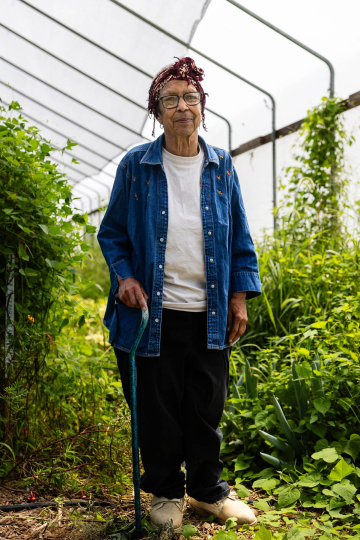Preserving Chesapeake culture with seed saving
How Southern Exposure is encouraging sustainable farming practices
During the coldest months of the year, gardeners and farmers have one annual tradition to look forward to—browsing through seed catalogs to plan for the next season.
People flip through the pages filled with colorful pictures and illustrations and dream about the possibilities of the next growing season. One such catalog that lands in mailboxes throughout the Mid-Atlantic and Southeast regions is from Southern Exposure Seed Exchange, an organization who specializes in maintaining seeds that were nearly lost to history.
Southern Exposure Seed Exchange was founded by Jeff McCormack and Patty Wallens in 1982. In 1999, they sold the company to Acorn Community Farm, and McCormack mentored them through the seed growing, pollination, harvesting and storage process. The company now works with over 100 small farmers to sell more than 800 varieties of vegetable, flower, herb, grain and cover crop seeds. They have continued to grow and filled over 52,000 orders in 2022.
Caring for the land
Southern Exposure Seed Exchange specializes in growing seeds of less common, regional crops that have been passed down through generations, known as heirloom seeds. About 90% of the seeds that existed at the turn of the 1900s have gone extinct because businesses began selling fewer varieties of fruits and vegetables, and didn’t maintain the seeds for rarer crops. Heirloom seeds are a way of preserving those regional foods and the history behind them.
A guiding principle of Southern Exposure’s work is to produce seeds that thrive across the Mid-Atlantic and Southeast. The seeds go through a trial period at their farm in Mineral, Virginia, before being added to the catalog. Because the seeds have been tested in the regional climate and against common pests and diseases, less pesticides and herbicides are needed to make the crops successful. In addition to reducing chemical inputs, Southern Exposure encourages practices to maintain soil health like using cover crops which reduce runoff from farms.

Saving seeds for the future
In a world where grocery stores are often filled with the same limited varieties of fruits and vegetables, Southern Exposure has managed to maintain and grow a selection of crops and varieties that aren’t as common.
While these seeds have the benefit of unique tastes and nutritional density, they also potentially hold the genetic keys to future diseases or pest problems. By maintaining such a great diversity of seeds and crops, Southern Exposure is creating a safety net for future generations. As climate change continues to impact the region's farmers, it will be important to have as many resources available as possible to strengthen the regional food system.
“You don't know what genetics matter until a new disease or weather challenge comes along,” said Ira Wallace, one of the founders of Acorn Community Farm and voice of Southern Exposure Seed Exchange. “Seed savers are the ones who steward and carry into the future these varieties that have unique characteristics that are a matter of personal taste.”
Sharing stories from the past
These seeds might be the key to food safety in the future, but they’re also a way to remember the past. Many varieties from Southern Exposure come with a story representing the former farmers, gardeners and stewards of the land.
In the organization’s catalogue, you’ll find seeds for crops such as Bowling red okra, which has been grown by the Bowling family in Virginia since the 1920s; Pennsylvania Butter-Flavored Popcorn, which has been maintained by the Pennsylvania Dutch since the late 19th century; and the Brimmer Tomato, which won the Grand Prize for size and quality at the Jamestown Exposition in 1907 at Sewell’s Point, Virginia.
“We say there are seed savers and there are seed keepers,” said Wallace. “I think seed keeping is both maintaining the stories and the traditions that go with the variety as well as maintaining the variety.”
Creating community
A key to Southern Seed Exchange’s mission is to share their knowledge instead of keeping it to themselves. The staff often share seed saving tips both on their website and social media. Their website also has multiple growing guides available. Members attend conferences and mentor new farmers—in fact, Wallace is the founder of the Heritage Harvest Festival, author of multiple books and presents at sustainable agriculture conferences across the region.
True to their slogan of “Saving the Past for the Future,” Southern Exposure Seed Exchange will provide seeds and history for generations to come. This, in turn, will help preserve the unique culture of the Chesapeake region.

Comments
There are no comments.
Thank you!
Your comment has been received. Before it can be published, the comment will be reviewed by our team to ensure it adheres with our rules of engagement.
Back to recent stories